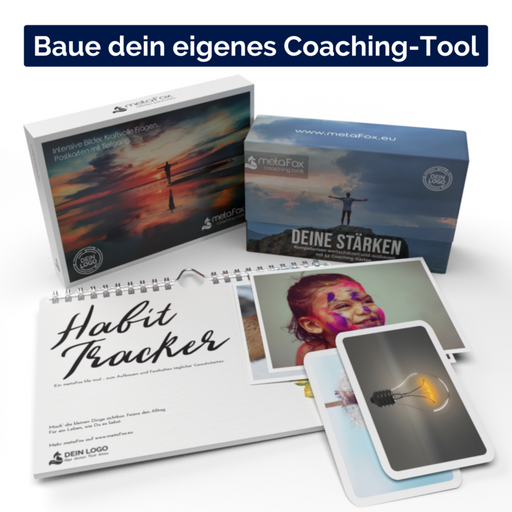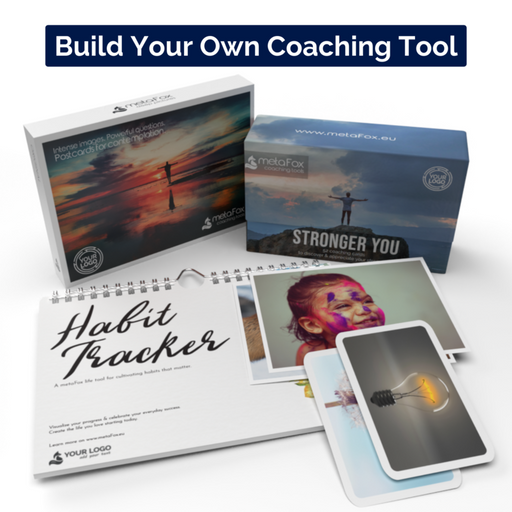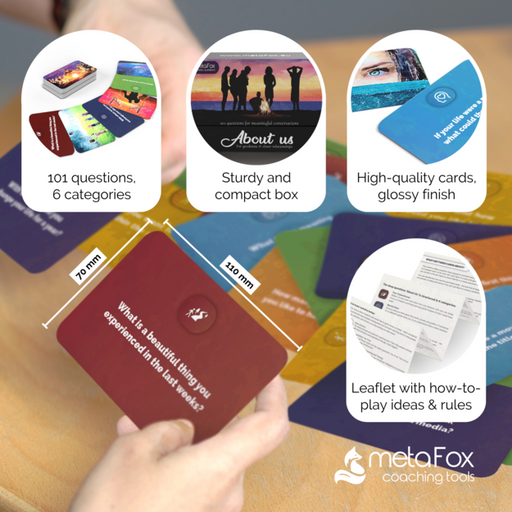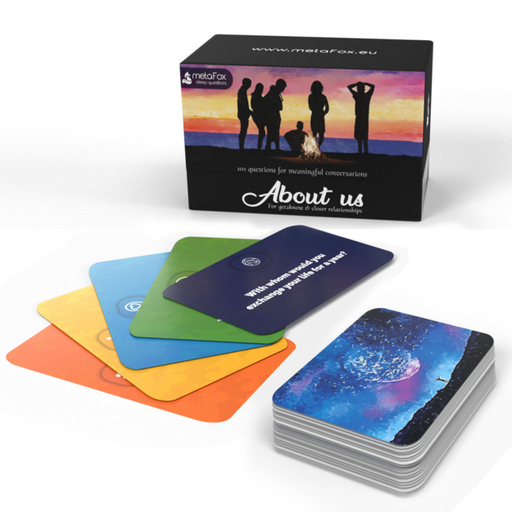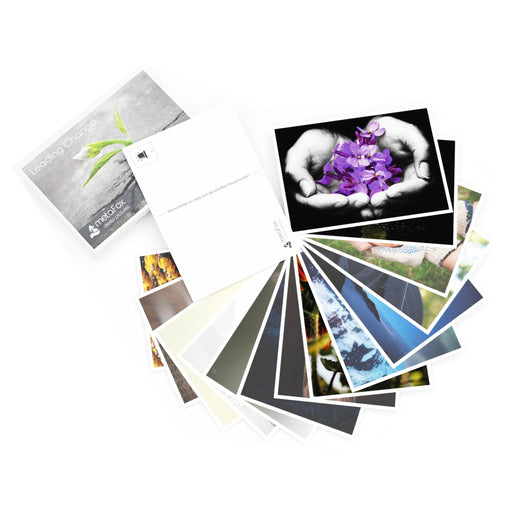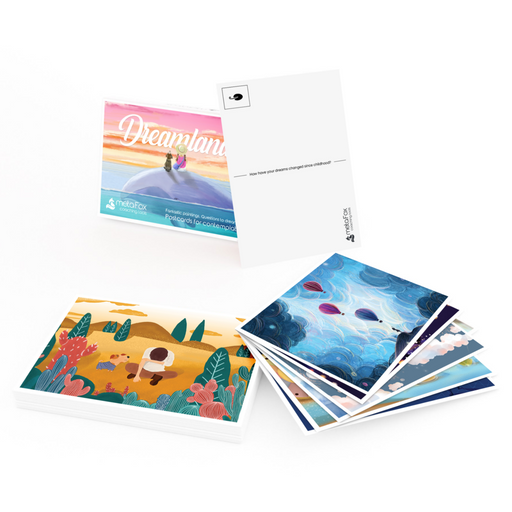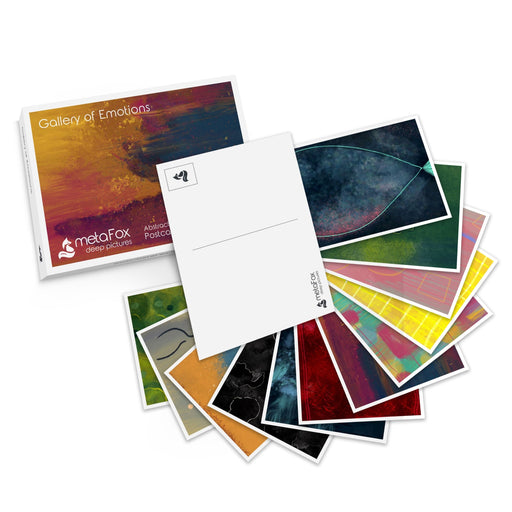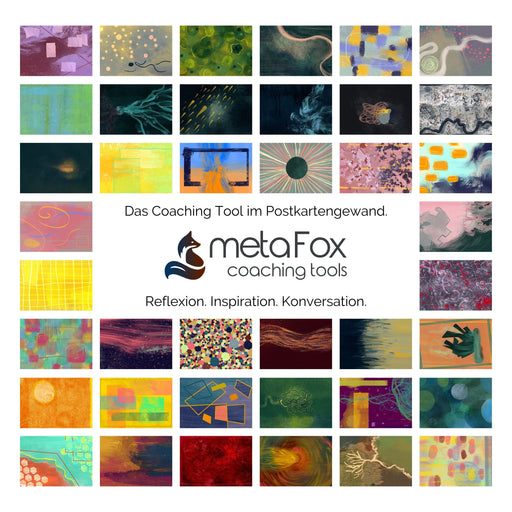Get your coaching cards methods e-book!
Simple ways to make your session interactive
We offer you a collection of coaching cards methods that you can use, adapt, or modify for your coaching, therapy, workshop, training sessions. We hope these suggestions inspire you in your important work with people.
Here's one method from the ebook that's perfect with the deep pictures!
"Pick a picture for how you are"
How to facilitate
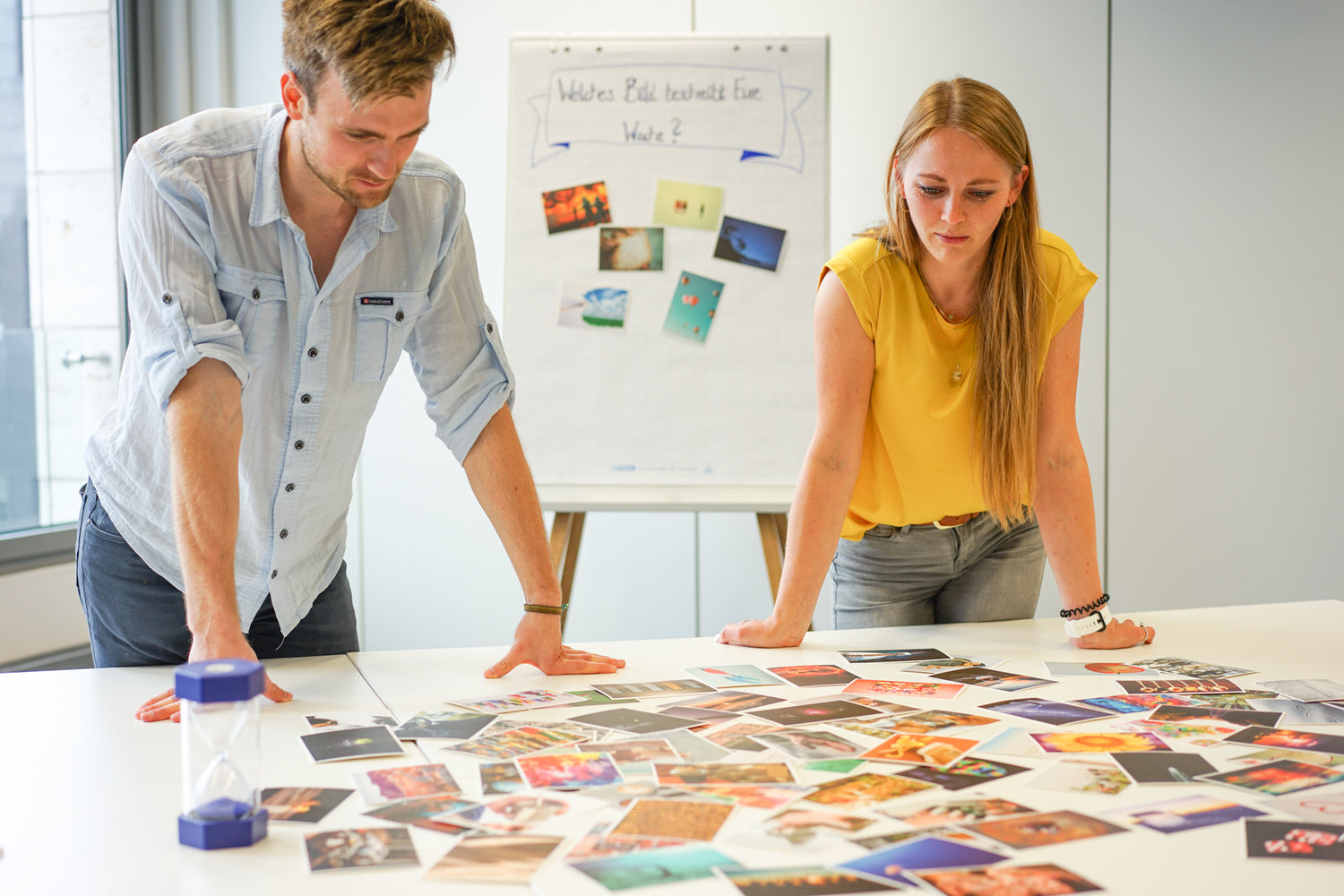
Spread picture cards in front of your participants.
Choose a set of 20-60 pictures and spread them in front of your
participants, e.g., on the table or floor. When working online in the
icebreaker browser app, select a card deck and share the invitation link with your participants.
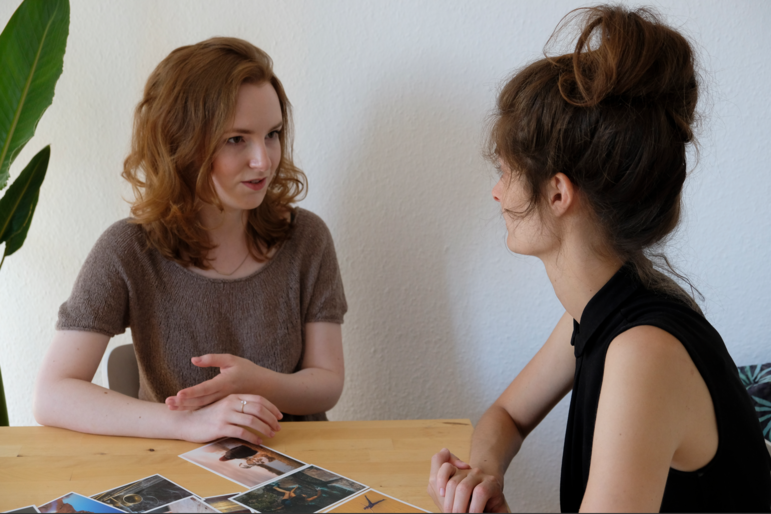
Ask a check-in question.
For an open start, an open-ended question works best, e.g. "How
are you today?" or "How have you been lately?"

Give time to reflect and select a card.
Ask people to answer this question by selecting a card that
represents their answer.
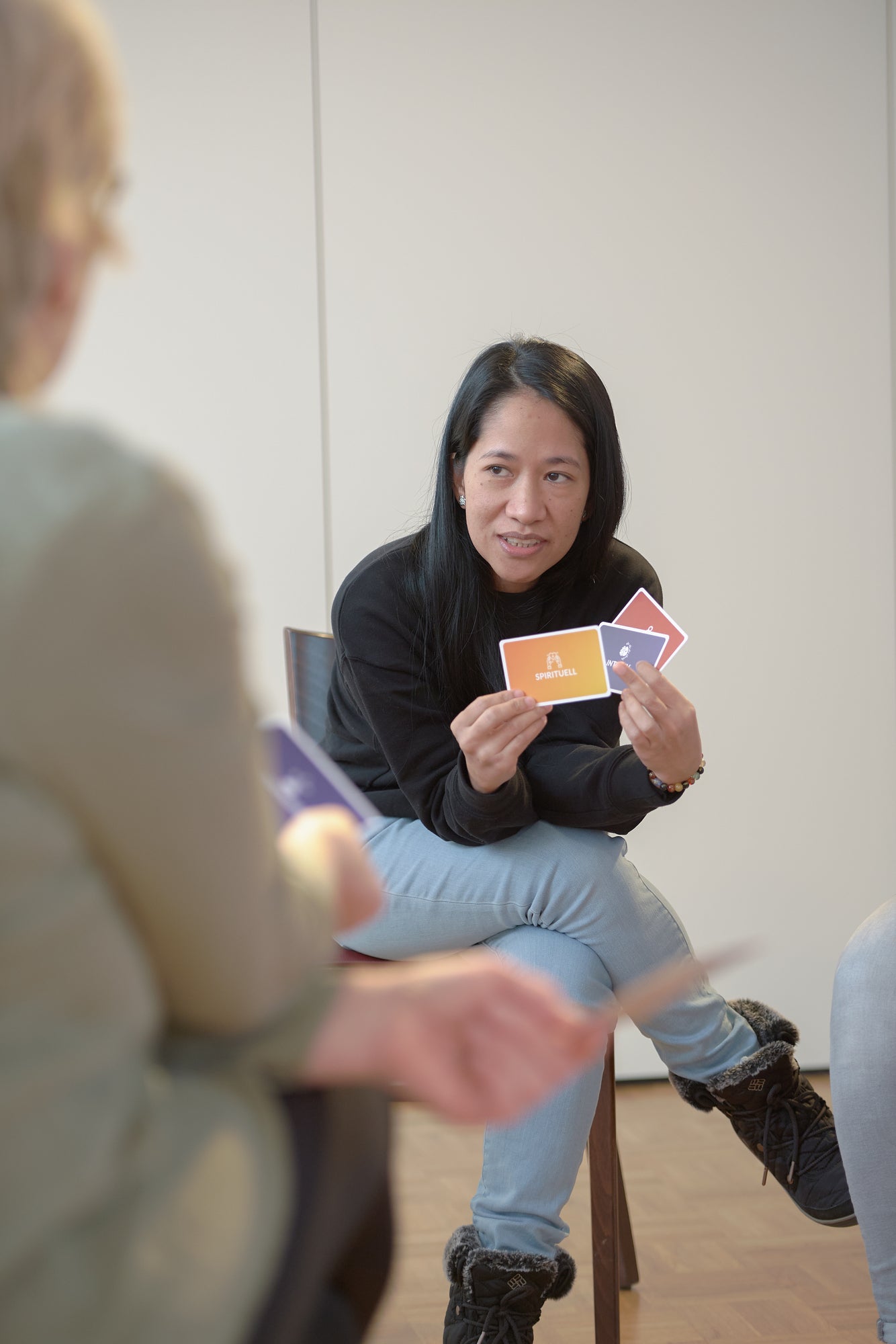
Invite people to share.
You can give the floor to the first speaker and have them present
their card. After they shared, encourage them to nominate the next
speaker. As the moderator, you can simply select the image for
everyone to see.
Projective Methods & How Coaching (Picture) Cards Work Their Magic
For many of us, it’s not so easy to open up and be vulnerable in front of our friends and family. This difficulty in sharing our thoughts and emotions usually also happens when interacting with strangers. Sometimes, it’s painful to honestly face ourselves. In other cases, we might not even be aware of how we feel about something until our cup overflows and we’re overwhelmed.
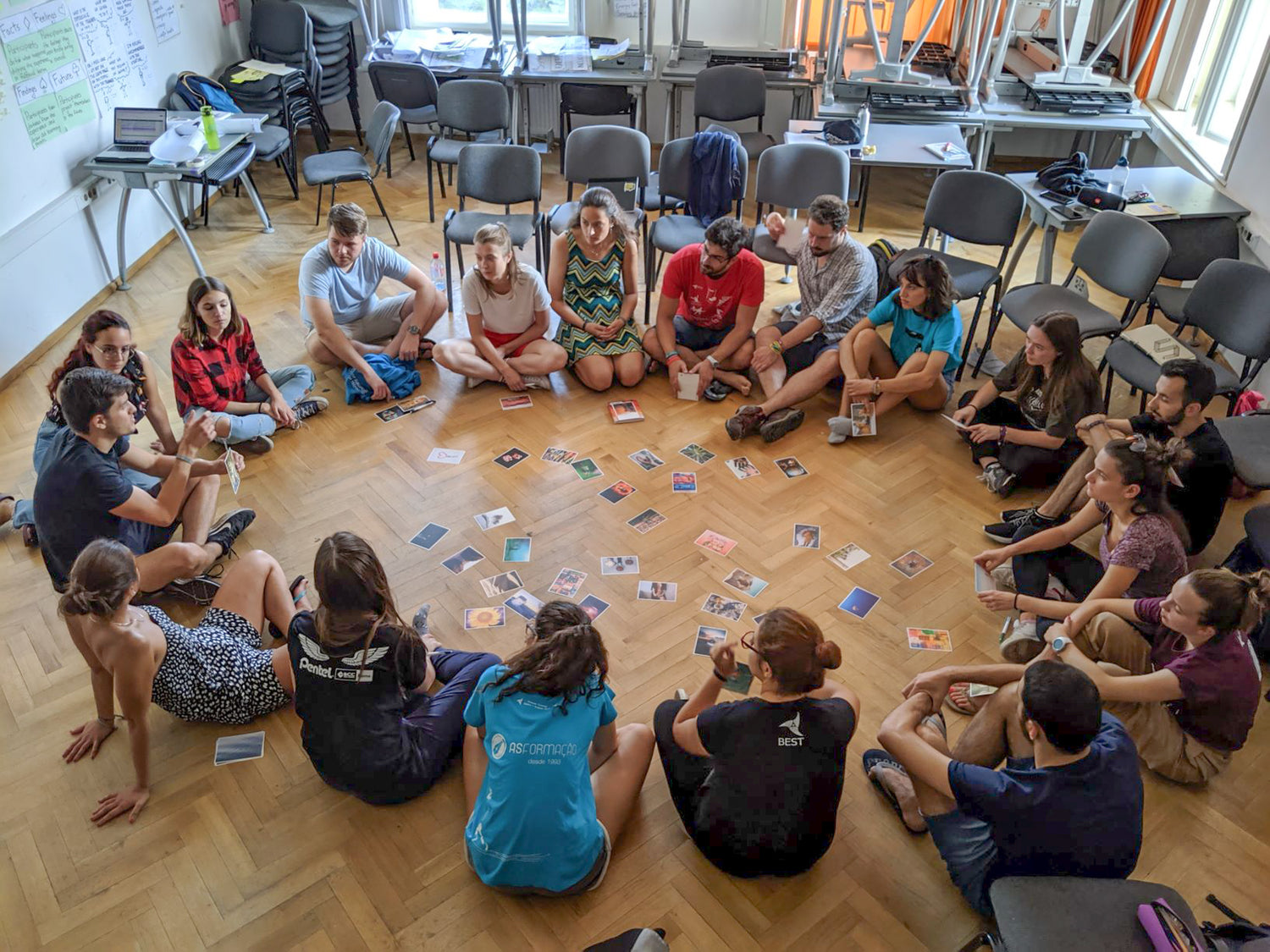
Making human connection easy
Finding a way to overcome these barriers to deep conversation and meaningful reflection is the reason behind our work at metaFox. Using metaFox coaching cards often goes like this – participants pick a card to answer a given question or topic. Each person takes a turn to talk about the images they chose and how it relates to their life. Everyone is encouraged to express themselves truthfully as a way of connecting with each other, to unburden themselves, and feel a little bit better.
This example demonstrates how the deep pictures (the first coaching cards we developed) use the principles of projective methods and adapt their techniques. Simply put, projective methods are enabling techniques to help reveal what matters most to people, their motivations, and subconscious attitudes, among others. Some commonly used projective methods are association techniques like complete-the-sentence exercises and the Rorschach Inkblot Test; expressive techniques like play, drawing and painting; and using photographs and images as tools to surface people’s perspectives and experiences.
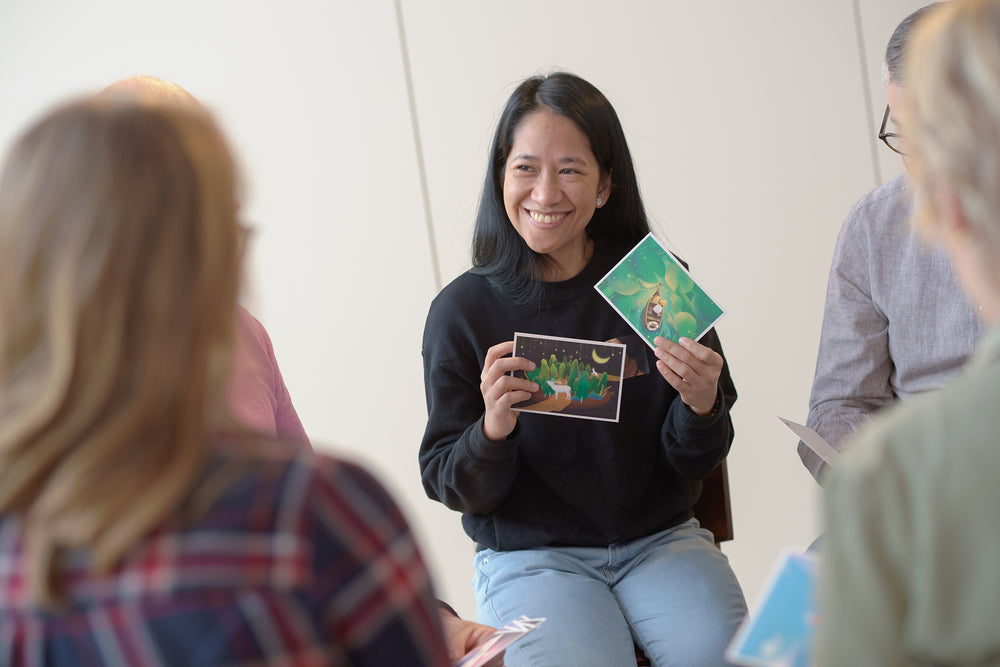
Using visual triggers and visual metaphors
These picture cards are designed to function as visual triggers. We’ve mindfully selected the images included in each set to bring about an emotional response from the viewer. They are visual metaphors helping to give a private experience, a feeling, or a thought some concrete shape and form.

Combining beautiful images with powerful questions
The picture cards combine the power of the visual and the verbal – beautiful images with fitting questions. They are developed by the metaFox community composed of trainers and facilitators who understand first hand the needs of coaches and trainers.
Tools for your next session
-
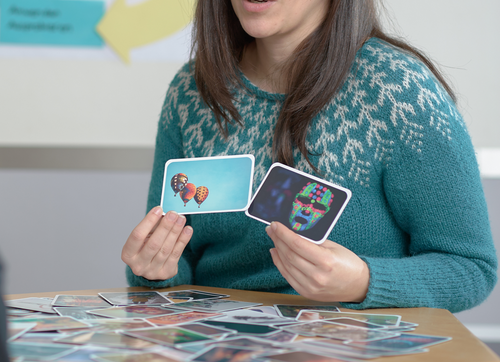 Featured Collection
Featured Collection -
Build Your Own Coaching Tool - the service for your custom card set
Original price €0,00 - Original price €0,00Original price€0,00€0,00 - €0,00Current price €0,00Your own coaching tool: Your idea, target group, and brand - our expertise, quality, and sales channels Do you love using coaching cards? Would you...
View full detailsOriginal price €0,00 - Original price €0,00Original price€0,00€0,00 - €0,00Current price €0,00 -
deep questions "About Us" Question Cards for Teambuilding
Original price €34,95Original price €34,95 - Original price €34,95Original price €34,95Current price €24,95€24,95 - €24,95Current price €24,95The deep questions "About Us" help people to connect and get to know each other on a deeper level. At its core, this card deck is a tool and game d...
View full detailsOriginal price €34,95Original price €34,95 - Original price €34,95Original price €34,95Current price €24,95€24,95 - €24,95Current price €24,95 -
deep pictures "Leading Change" Photo Postcards
Original price €34,95 - Original price €34,95Original price€34,95€34,95 - €34,95Current price €34,95The metaFox deep pictures combine 52 evocative picture cards and powerful coaching questions for adults in one postcard set. The deep pictures "Lea...
View full detailsOriginal price €34,95 - Original price €34,95Original price€34,95€34,95 - €34,95Current price €34,95 -
deep pictures "Dreamland" Illustration Postcards
Original price €34,95 - Original price €34,95Original price€34,95€34,95 - €34,95Current price €34,95The metaFox deep pictures combine 52 evocative image cards and powerful coaching questions for adults in one card set. The deep pictures "Dreamland...
View full detailsOriginal price €34,95 - Original price €34,95Original price€34,95€34,95 - €34,95Current price €34,95 -
deep pictures "Gallery of Emotions" Abstract Art Postcards
Original price €34,95 - Original price €34,95Original price€34,95€34,95 - €34,95Current price €34,95Your deep-seated feelings and thoughts are waiting to be discovered. The deep pictures "Gallery of Emotions" already framed these unknown and vague...
View full detailsOriginal price €34,95 - Original price €34,95Original price€34,95€34,95 - €34,95Current price €34,95 -
deep pictures "Life Design" Photo Postcards
Original price €34,95 - Original price €34,95Original price€34,95€34,95 - €34,95Current price €34,95The metaFox deep pictures combine 52 evocative picture cards and powerful coaching questions for adults in one postcard set. We designed the deep p...
View full detailsOriginal price €34,95 - Original price €34,95Original price€34,95€34,95 - €34,95Current price €34,95




